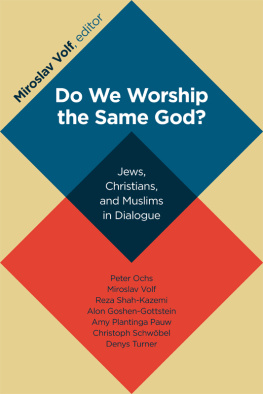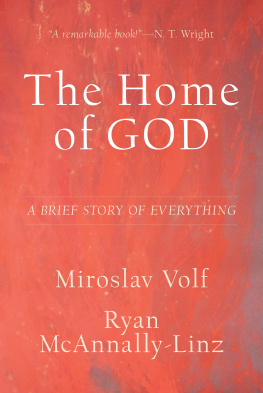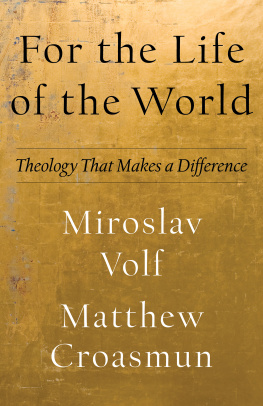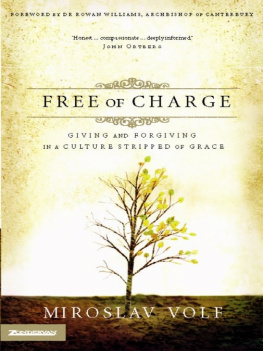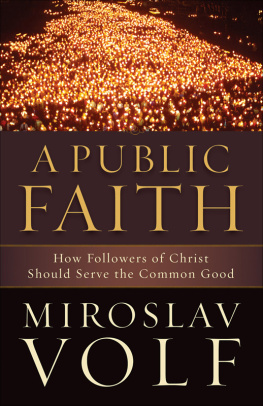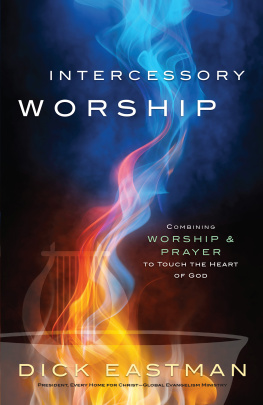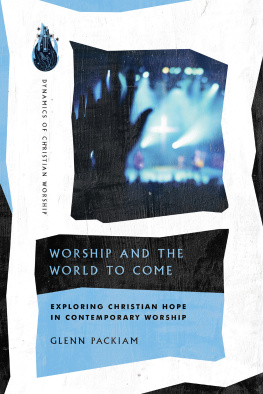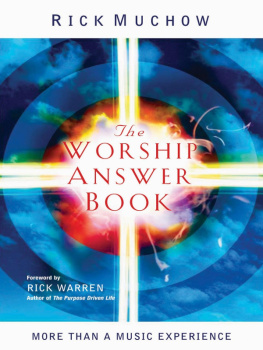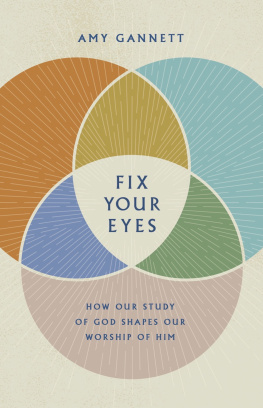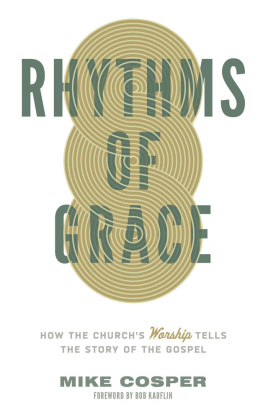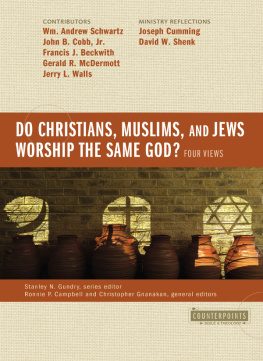Do we worship the same God? This is such an important question today. These groundbreaking high-quality essays from Christians, Jews, and a Muslim open important doors onto new paths.
Gavin DCosta
University of Bristol
None of the contributors to this collection gives a clear, simple answer to the question that perplexes them all. And thats what makes this conversation so engaging and enlightening. Each of the authors responds with a yes but no or a no but yes. Together, they draw on tradition, philosophy, scriptural analysis, and especially mysticism to affirm both the depth and the diversity of faiths that call themselves monotheistic.
Paul F. Knitter
Union Theological Seminary
This extremely noteworthy book deals with a very critical and thorny issue, which is most often avoided. Highly academic and intellectually stimulating, this is also one of the most hopeful texts I have read on this subject. It is of critical significance for anyone involved in theologies of religion, especially within the monotheistic or Abrahamic tradition.... Imperative for anybody involved in interfaith dialogue.
Charles Amjad-Ali
Luther Seminary
Do We Worship the Same God?
JEWS, CHRISTIANS, AND MUSLIMS IN DIALOGUE
Edited by
Miroslav Volf
WILLIAM B. EERDMANS PUBLISHING COMPANY
GRAND RAPIDS, MICHIGAN / CAMBRIDGE, U.K.
2012 Miroslav Volf
All rights reserved
Published 2012 by
Wm. B. Eerdmans Publishing Co.
2140 Oak Industrial Drive N.E., Grand Rapids, Michigan 49505 /
P.O. Box 163, Cambridge CB3 9PU U.K.
17 16 15 14 13 12 7 6 5 4 3 2 1
Library of Congress Cataloging-in-Publication Data
Do we worship the same God?: Jews, Christians, and Muslims in dialogue /
edited by Miroslav Volf.
p. cm.
ISBN 978-0-8028-6689-9 (pbk.: alk. paper)
ISBN 978-1-4674-3657-1 (epub)
1. God. 2. Abrahamic religions. 3. Religions Relations. 4. Judaism.
5. Christianity. 6. Islam. I. Volf, Miroslav.
BL473.D6 2012
201.5 dc23
2012009877
www.eerdmans.com
Contents
Christoph Schwbel
Denys Turner
Amy Plantinga Pauw
Alon Goshen-Gottstein
Reza Shah-Kazemi
Peter Ochs
Ever since 9/11 the question whether Muslims and Christians worship the same God has persistently followed me wherever I go speaking about relations between these two religions. Muslims dont push the question. Christians do, vigorously in Europe, Asia, and Africa no less than in North America. Maybe thats not surprising. The terrorists who flew the planes on that suicidal mission were instructed in their manual: Remember, this is a battle for the sake of God. In the name of God and with expectations of glory in this world and rewards in the next, they killed themselves and thousands of innocent civilians. To many Christians it seems obvious that the God who spills the blood of the innocent and rewards suicidal missions with paradisiacal pleasures cant be the God they worship. What many Christians arent aware of is that that may be obvious to many Muslims as well.
But the question isnt mainly about the terrorists and their God. Its about Muslims generally. It draws its energy from a deep concern. To ask: Do we have a common God? is, among other things, to worry: Can we live together? Thats why whether or not a given community worships the same god as does another community has always been a crucial cultural and political question and not just a theological one.
Live together Muslims and Christians will!
- Christianity and Islam are today the most numerous and fastest growing religions globally. Together they encompass more than half of humanity. Consequence: both are here to stay.
- As a result of globalization, ours is an interconnected and interdependent world. Religions are intermingled within single states and across their boundaries. Consequence: Muslims and Christians will increasingly share common spaces.
- Since both religions are by their very nature socially engaged they are world-transforming religions of a prophetic type and since their followers mostly embrace democratic ideals, they will continue to push for their vision of the good life in the public square. Consequence: tensions, even conflicts between Muslims and Christians, are unavoidable.
Growing, intertwined, and assertive communities of Muslims and Christians will live together.
Muslims and Christians can work together to depose dictators and assert the power of the people; weve seen it happen in the Tahrir Square in Cairo during the 2011 revolution in Egypt, with devout Muslims and Coptic Christians protesting side by side. But can Muslims and Christians also work together to build a flourishing democratic society in which rights of all would be respected, the rights of minority Coptic Christians no less than the rights of majority Muslims? They can, if they have a common set of fundamental values. But do they? Only if Muslims and Christians, both monotheists committed to seeing in the attributes of God their fundamental values, have a common God. But do they?
At the height of the Iraq War in 2004, influential TV evangelist and former U.S. presidential candidate Pat Robertson said: The entire world is being convulsed by a religious struggle. The fight is not about money or territory; it is not about poverty versus wealth; it is not about ancient customs versus modernity. No. The struggle is whether Hubal, the Moon God of Mecca, known as Allah, is supreme, or whether the Judeo-Christian Jehovah God of the Bible is supreme. That was a war cry! God vs. Allah.
The dispute is not about the divine name, God or Allah, as some ignorantly claim. Arab Christians have for centuries worshiped God under the name Allah; the Copts in Egypt, a persecuted minority, use Allah to refer to the God of Jesus Christ who is the Holy Trinity. The dispute is about the divine identity: Do Muslims and Christians pray to two different deities so that, given that both are strict monotheists, one group prays to a false god and are therefore idolaters whereas the other prays to a true God?
Many Christians through the centuries, saints and undisputed great teachers, have believed that Muslims worship the same God as they do the same God, though differently understood, of course. They did so even in times of Muslim cultural ascendency, military conquests, and grave threat to Christianity in the whole of Europe. After the fall of Constantinople (1453), the city named after the first Christian emperor and a seat of Christendom for over 1,000 years, Cardinal Nicholas of Cusa, a towering intellect and an experienced church diplomat, affirmed unambiguously that Muslims and Christians worship the same God, albeit in part differently understood.
But was the learned cardinal from centuries past right? Or might the popular TV evangelist have been closer to the truth, notwithstanding the exaggerated character of the contrast he drew? The issue continues to be hotly debated. Under the auspices of the God and Human Flourishing Program housed in the Yale Center for Faith and Culture (www.yale.edu/faith), my two colleagues (David Kelsey and John Hare) and I have organized two consultations about the question. Selected papers from these two consultations are printed in this book.

